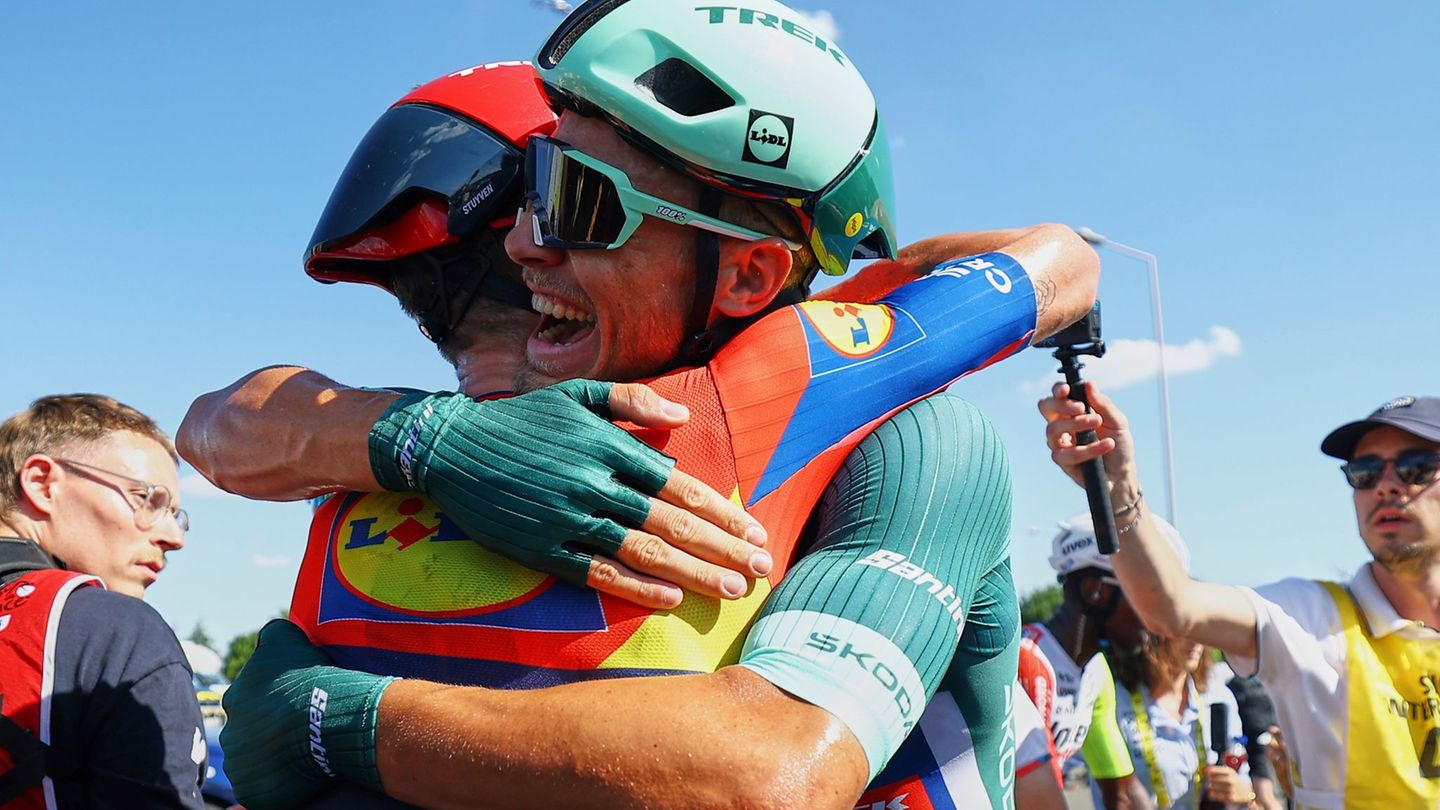Competition in the television market was limited for decades, and market leader Vodafone had it easy thanks to a legal regulation. That is now over – to Telekom’s delight.
After the end of the “utility costs privilege”, where tenants had to pay for their TV connection through the operating costs and cable network operators such as Vodafone had a big advantage as a result, Deutsche Telekom is on the up. After deducting cancellations, Magenta TV added 114,000 customers in the second quarter, the company in Bonn announced. In total, the number is now around 4.5 million.
This means that growth has accelerated; in the first quarter of the year there was a net increase of just 73,000. During the European Football Championship and other events, Telekom invested heavily in advertising to boost business – which is probably one of the reasons why demand increased. From the perspective of company boss Tim Höttges, the Magenta TV brand received “a boost” in the last quarter.
Expensive advertising campaign bears fruit
In addition to the TV customers who are tied to a connection, there are also so-called OTT customers, the abbreviation stands for “Over the Top”. They get Magenta TV outside of their internet contract and do not need a receiver. “Several hundred thousand” of these contracts have been sold, says CFO Christian Illek. However, some of them are only customers for a short time: they booked Magenta TV because of its extensive offer for the European Football Championship, but have already canceled the contract or are planning to do so.
The ancillary costs privilege is history
Since July 1, costs for the television signal can no longer be passed on to the tenant via the utility bill. This option had been available for decades, giving market leader Vodafone a clear competitive advantage, also known as the “utility cost privilege.” The German subsidiary of a British corporation had around 8.5 million customers who paid for their TV connection in this way – whether they wanted to or not. The landlords had concluded collective contracts to this effect.
This is no longer possible – customers must have a contract with the TV provider themselves or voluntarily participate in a new form of collective contract. Since the beginning of the year, Vodafone has lost around 1.3 million customers due to this change in the law, and there is likely to be another significant loss in the summer quarter.
Different types of transmission
There are various ways to watch television. This can be done via satellite, antennas, cable and the Internet. There are freely accessible channels on the Internet, for example via the ARD Mediathek. Private channels are generally not free to receive, however; customers have to pay for them. Internet providers such as Zattoo, waipu.tv and Magenta TV also offer access to such channels, and these providers are now on a growth path.
Compared to Vodafone’s heavy losses, Telekom’s gains of around 187,000 customers since the beginning of the year are limited. When asked about this, CFO Christian Illek points out that there are also customers who no longer want linear TV at all. “They have opted out of the mandatory connection and no longer want a TV connection at all.” It is unclear how many there are. “But overall we are wonderfully satisfied with the TV development,” says the Telekom board member.
Positive quarterly figures
The Bonn-based group’s business with its American subsidiary T-Mobile US is going well, and demand for mobile phone contracts was unexpectedly high in the second quarter of 2024. At group level, revenue in the second quarter increased by 4.3 percent year-on-year to 28.4 billion euros. That was more than industry experts expected. The bottom line is that Telekom earned just under 2.1 billion euros, compared to around 1.5 billion the year before.
Source: Stern




